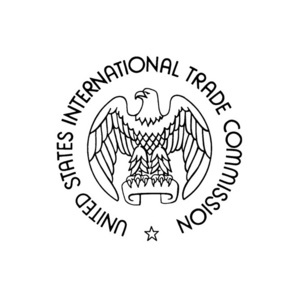Last hurdle cleared in US biodiesel trade case as ITC votes 4-0

April 3, 2018
BY The National Biodiesel Board
On April 3 the U.S. International Trade Commission voted 4-0 in favor of the National Biodiesel Board Fair Trade Coalition’s position that the industry has suffered because of unfairly dumped imports of biodiesel from Argentina and Indonesia. This affirmative vote on injury is the last remaining procedural hurdle before final antidumping orders can be issued later this month.
“This vote today finalizes the case to address the harm that unfair trade practices have had on the U.S. biodiesel industry,” said Donnell Rehagen, CEO of the NBB. “Foreign producers dumping product into American markets below cost has undermined the jobs and environmental benefits that U.S. biodiesel brings to the table. Establishing a level playing field for true competition in the market will allow the domestic industry the opportunity to put to work substantial underutilized production capacity.”
Last month, the U.S. Department of Commerce calculated final dumping rates ranging from 60.44 to 86.41 percent for Argentine producers, and 92.52 to 276.65 percent for Indonesian producers.
The NBB Fair Trade Coalition filed this antidumping petition in parallel to a countervailing duty petition to address a flood of subsidized and dumped imports from Argentina and Indonesia that resulted in market share losses and depressed prices for domestic producers. Biodiesel imports from Argentina and Indonesia surged by 464 percent from 2014 to 2016, taking 18.3 percentage points of market share from U.S. manufacturers. These surging, artificially low-priced imports prevented producers from earning adequate returns on their substantial investments and stifled the ability of U.S. producers to make further investments to serve a growing market.
A final determination by the commerce department in the companion countervailing duty determination was announced in early November, resulting in duty deposit rates of 71.45 to 72.28 percent for Argentina and 34.45 to 64.73 percent for Indonesia.
Advertisement
Advertisement
The U.S. biodiesel market supports nearly 64,000 jobs nationwide and more than $11 billion in economic impact. Every 100 million gallons of increased biodiesel production supports some 3,200 additional jobs. Producers nationwide are poised to expand production and hire new workers with steady growth in the industry.
Advertisement
Advertisement
Related Stories
While final IRS guidance is still pending, the foundation of the 45Z program is well defined. Clean fuel producers should no longer be waiting; they can now move forward with critical planning and preparation, according to EcoEngineers.
The IRS on July 21 published a notice announcing the 2025 calendar-year inflation adjustment factor for the Section 45Z clen fuel production credit. The resulting adjustment boosts maximum the value of the credit by approximately 6%.
The U.S. Senate on July 23 voted 48 to 47 to confirm the appointment of Aaron Szabo to serve as assistant administrator of the U.S. EPA’s Office of Air and Radiation. Biofuel groups are congratulating him on his appointment.
U.S. Secretary of Agriculture Brooke L. Rollins today announced the reorganization of the USDA, refocusing its core operations to better align with its founding mission of supporting American farming, ranching, and forestry.
The U.S. Department of Energy’s Office of Energy Efficiency and Renewable Energy is soliciting public comments on a preliminary plan for determining provisional emissions rates (PER) for the purposes of the 45Z clean fuel production credit.
Upcoming Events










